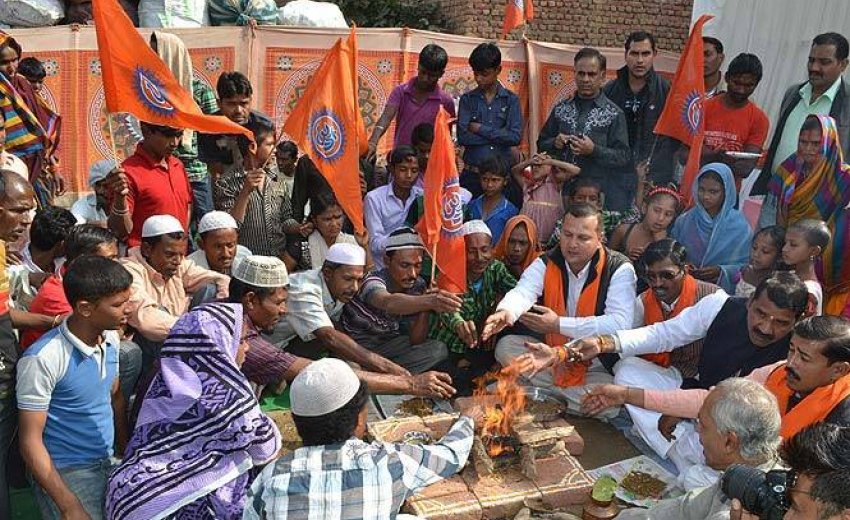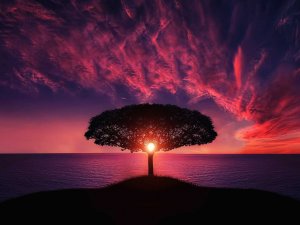A stroll down Google Lane tells us that the term sound bite originated around1980. Sound bites hold your attention for about 30 seconds, a time span critical to catching a reader’s eye and focusing it quickly, but sharply, on a topical concern. I offer you a uniquely simple example: KISS for “Keep it simple, stupid.”
In the 1980 Presidential campaign, Ronald Reagan repeatedly threw “There You Go Again” in the face of President Jimmy Carter as a most effective sound bite. Twelve years later in 1992, it was Bill Clinton’s turn to leave President George H. W. Bush speechless with “It’s the economy stupid.” Then, in 2008, Barak Obama turned the tables with “Don’t do Stupid Stuff” with telling effect. And then he swallowed Hillary Clinton’s rejoinder that “Don’t do Stupid Stuff is not an Organizing Principle.” Now sound bites, starting with “Make America Great Again” are Trump’s main arsenal aimed to pulverize his victims into rapid submission rather than unnerve them with the acute sharpness of a precisely-aimed idea. His darts are more in the class of Rumsfeld’s Shock and Awe that captured the spirit of the American misadventure in Iraq.
Such is real-politic; what goes around comes around. Sound bites are of recent vintage; short on words, long on meaning, easy to remember. They have a dominating presence in the world of sports, politics and even religion.
Panth in Danger
Panth (in Punjabi) indicates the collective Sikh community. “Panth in Danger” is a slogan that we have heard over a lifetime. Hypnotically catchy, like a call to arms, this well-crafted sound bite dares us to respond viscerally, not analytically. That’s exactly what soundbites do. The kernel of truth in them gives them life, urgency and potency.
I don’t really know when Panth in Danger gained currency. Could it have been during Mughal rule in the 18th century when Sikh survival literally hung in the balance? I heard it ad infinitum during the 1950s. Sikhs were then pushing the Indian government to carve out a Punjabi-speaking state as was being done for a plethora of the other Indian languages. But was/is Sikhi really in danger, then or now? That’s whole different matter for another time.
A hundred years ago, during Dayanand’s fulminations against Sikhi and their Gurus, the clarion call of Panth in Danger acquired poignancy. It arose to counter a campaign designed to deny Sikhi an independent and equal place in the nominally secular but, in fact, increasingly partisan Hindu India — a reality that has become progressively worse. India seems to be developing alarming intolerance for non-Hindu cultures, be it Buddhism, Christianity, Islam or Sikhism.
Sample, for instance, Bollywood; its cultural humor is surfeit with Sikhs and Sikhi. With few exceptions, it hits at Sikhi via pointless banter, the easy laugh and the cheap joke, devoid of clever logic, intellectual gymnastics, rich or pointed play on words. Luckily Sikhs retain their ability to laugh at themselves. I write this not as a Hindu-hater or Hindu-baiter, but from sadness, because it cheats India of both its history and its promised tryst with destiny.
Around 40 years ago, a strident Hindu political party in India won the national election and ruled for some years. This led to a great unease in the Sikh community (barely 2 percent of India’s teeming billion plus) regarding how a partisan Hindu political party would treat minorities. At a pre-election meeting where Sikhs were tinkering with which party to support, a leader of the North American Sikh community advised Sikhs to vote for the Hindu partisan party. His argument: Sikhs should help elect them, even though their leaders do not recognize Sikhi as a distinct religion separate from Hinduism. When we asked why, his answer was beyond simplistic, not even remotely real. “The Hindu fundamentalist government, he claimed, will achieve nothing and will self-destruct. That will fragment the country and Sikhs will be able to wrest their own nation – Khalistan – from the internal mess.” So much for rational analysis!
Now once again, India is governed by a similar political elite and this time they won big. Don’t forget that Hindus, the largest vote bank in India, constitute better than 80% of the population.
Today, I step aside from the material and socio-economic impact of the election on India to engage briefly with Indian nation’s internal structure.
The new sound bite in India is “Hindu, Hindi, Hindustan. This came to me forcefully and unmistakably the night of the BJP celebration some years ago where I was one of the few Sikhs in a sea of Hindus, and it reverberates more strongly today. Hindi is the language of Hindus even though most Hindus find it a foreign tongue because modern India is a mélange of many independent nation-states, each with its own language, culture and cuisine. Hindustan, literally land of the Hindus, is how the Indian Subcontinent has been labeled in history. The Constitution of free India does not list this name but refers to India as Bharat.
The ruling clique has added a novel twist to the mess. Political luminaries with scholarly pretensions argue that Islam and Christianity came to India with very few people from foreign lands who brought foreign ideology with them. Ergo, the overwhelming majority of all Indians who are now Sikhs, Muslims or Christians converted from Hindu stock and that’s a legacy that they must return to. They should reconvert and revert to their Hindu roots. So goes this argument.
Such reasoning muddles the realities for minorities in India, such as Sikhs. Clearly, the first four Sikh Guru-Founders of Sikhism came from Hindu stock. A growing Hindu view ignores the unmistakable renunciation of Hinduism’s defining practices by the Gurus. Similar reasoning is applied to Jains and Buddhists. By this logic there are no minorities in India, except for a small countable number of Jews and Parsees, and perhaps fewer Christians and Muslims. On this dubious logic rests India’s government-supported initiative ambitiously dubbed “Ghar Wapsi” to pressure minorities to return to Hinduism.
But I wonder!
It is true that very few Christians came into India from outside, so most Indian Christians are converts from Hindu stock. The conclusion that, therefore, they remain Hindus — today, tomorrow and forever, flies in the face of all reason.
Apply similar reasoning to the world to see the absurdity. Since Jesus was born a Jew as were his early followers, should these upstarts be reclassified as Jews today? By this logic there are and can be few, if any, Christians in the world. In India, most Indian Christians likely converted from Hindu roots and should then return to the Hindu fold. And since Jesus was born a Jew, no matter what he taught and that his teachings are now known as Christianity all over the world, his movement remains Judaism and he remains a Jew. Such reasoning would surely be labeled asinine and rightly so. No thinking person should buy it.
This virulent campaign goes further and self-righteously asserts that it is fair to pressure all the Indian Sikhs, Christians and Muslims to return to the Hindu fold because that would only be returning to their roots — their original home and base, from where no can walk away in good conscience. In other words, once a Hindu, always a Hindu – through eternity.
A softer version of this proclaims that all Indians are Hindu by definition and by culture. Labels such as Muslim, Christian or Sikh are just weak identifiers of their particular sect of Hinduism — a minor branch of the enormously vast Hindu mythological tree, forever inseparable from the parent root and stem.
Hence the Indian government-inspired campaign and demand that all ‘Indians’ come home to their Hindu reality – Ghar Wapsi or “Return Home” in translation. This idea of returning to one’s roots has gained enormous currency in modern India. It is an emotionally powerful wrenching slogan. Yet, India has the audacity to define itself as secular.
And I wondered a bit further!
Some social anthropologists suggest that the word “Hindu” is a variant of “Sindhu,” the river in the northwest of the Subcontinent, and that’s how the people became Hindus. Hindus insist that their rich scriptures and mythology, included the Vedas originated in India
Some fundamental questions remain: What were the people of the Subcontinent before their scriptures were elaborated? Certainly, there was intelligent life in India even during the many eons when the rules, dicta, and traditions of Hinduism were still in the making, when the Vedas were incomplete or not yet fully elaborated. Life existed then. Were the Indian people unclassified tribal perhaps?
By the logic of “Ghar Wapsi” don’t they all remain unchangeably whatever they were, forever and more, before the Hindu label was even coined to define them. To return to what one was aeons ago requires that we first search for the sect or tribe of apes that Hindus belonged to so that they can return to it. Only then we can decide of how to reclassify other (non-Hindu) natives of India.
Perhaps the largest mass conversion of peoples from age-old Hinduism to another religion in modern times occurred in mid-20th century when B.R. Ambedkar led almost 400,000 low caste (untouchables) Hindus into Buddhism. Earlier episodes of mass exodus out of Hinduism were likely prompted by the messages of Buddhism, Christianity, Islam, and Sikhism.
But now that caste-riven India is politically free, a nominally secular India is being driven back in time by the demand and the soundbite that free people return to their old slave reality of a divisive society.
This in short is the message of “Ghar Wapsi.” In other words, Come back little children. Return to the system – unjust as it was and unjust as it will likely remain, for such is God’s will. Suffer and enjoy. What is being sold here: Colossal ignorance or masochism?
A simple factoid from the New York Times is pertinent: Over the last decade, between two contiguous census periods, over 10 million Americans changed their religious identity in their census data. A free people have that freedom. Home is where the heart is.
I wonder how India, the world’s largest functioning secular democracy, would deal with such an earth-shattering event.





